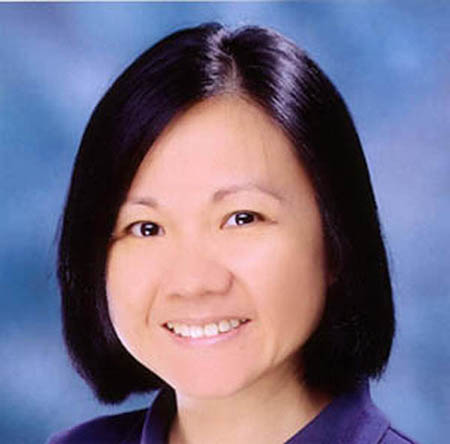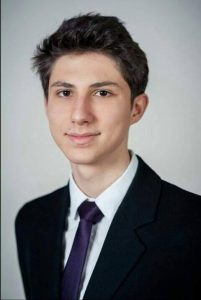Past GRI Researchers
Nora Borodziej (Czech Republic)
Project summary: An analysis of anti-immigrant rhetoric espoused by Miloš Zeman, President of the Czech Republic (2013 – present). This analysis draws heavily on an interview he gave to the Washington Post in January 2017.
Case Study: Case Study: “We Don´t Want Islam in Czech Republic”
Álex Cabo Isasi (Spain)
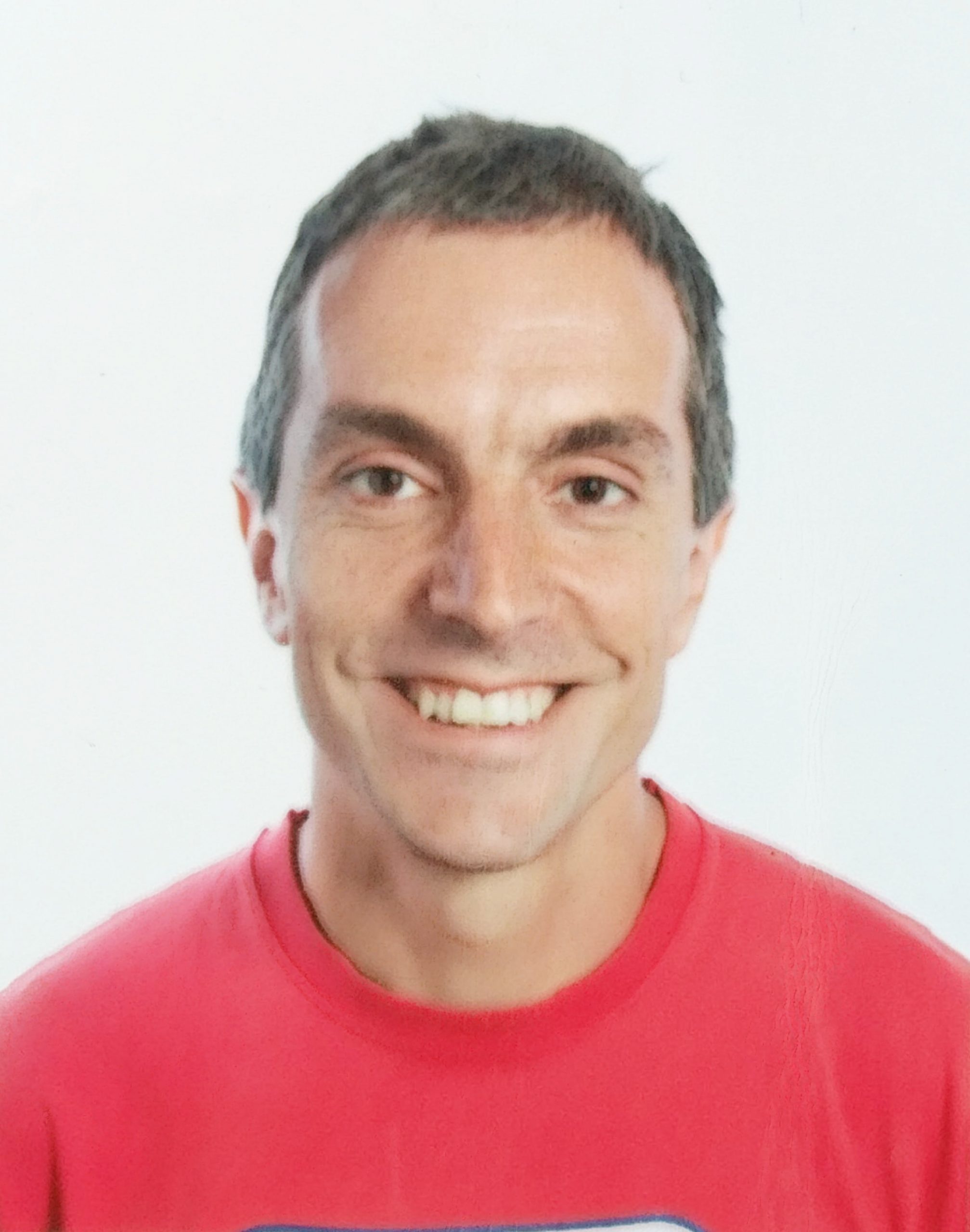 Álex Cabo Isasi was part of the team that devised PROXI (Project against Xenophobia and Intolerance in Online Media), a project that was recommended as best practice by the European Web Site on Integration. He co-authored the report “Hate Speech in Social Media” for the Barcelona City Council. The report was the background paper of the Barcelona vs. Hate Speech International Conference, and he collaborated in the launch and contents of the Barcelona City Council’s website against hate speech. He delivers seminars and workshops on hate speech in social media, as well as on other topics, for the University of Barcelona, the University of Deusto-Bilbao, and the Immigration Observatory of the University of the Basque Country. He holds a Degree in Law and Economics, and a MA in Immigration Management.
Álex Cabo Isasi was part of the team that devised PROXI (Project against Xenophobia and Intolerance in Online Media), a project that was recommended as best practice by the European Web Site on Integration. He co-authored the report “Hate Speech in Social Media” for the Barcelona City Council. The report was the background paper of the Barcelona vs. Hate Speech International Conference, and he collaborated in the launch and contents of the Barcelona City Council’s website against hate speech. He delivers seminars and workshops on hate speech in social media, as well as on other topics, for the University of Barcelona, the University of Deusto-Bilbao, and the Immigration Observatory of the University of the Basque Country. He holds a Degree in Law and Economics, and a MA in Immigration Management.
Project Summary: Isasi will analyze far-right Islamophobic speech in Spain, where there has been a recent rise of the far-right party VOX.
Case Study: Far-right Islamophobic Speech in Spain
Yvonne Chua and Maria Diosa Labiste (Philippines)
Yvonne T. Chua is an assistant professor of journalism at the University of the Philippines.
Ma. Diosa Labiste, PhD, teaches in the Department of Journalism, College of Mass Communication, University of the Philippines. Her research interests focus on the interrelationships between journalism, democracy, and new media technologies.
Project summary: This case study analyzes the speeches of Rodrigo Duterte, President of the Philippines. Since he was elected president in 2016, Duterte has delivered scores of speeches that justify his nationwide campaign against drugs. His speeches endorse violence against drug users and sellers, especially those who are poor.
Case Study: President Rodrigo Duterte’s dangerous speech in the Philippines
Katarina Damčević (Croatia)
 Katarina Damčević is a doctoral student and teaching assistant at the University of Tartu, Estonia. Her research focuses on hate speech and contested symbols in post-conflict societies and narratives of nation-building, primarily in the post-Yugoslav context. She is interested in conflicted meanings associated with symbols from the World War II Ustasha regime and their use by various mnemonic actors in contemporary Croatia. She co-founded the research group dedicated to the development of a semiotic framework for the analysis of different types of conflicts, with emphasis on the multi-faceted nature of conflicts and the dynamics of meanings surrounding them. The group designed a course and organized several events and workshops in Estonia and Croatia in the past two years. You can find Katarina on Twitter @kdamcevic.
Katarina Damčević is a doctoral student and teaching assistant at the University of Tartu, Estonia. Her research focuses on hate speech and contested symbols in post-conflict societies and narratives of nation-building, primarily in the post-Yugoslav context. She is interested in conflicted meanings associated with symbols from the World War II Ustasha regime and their use by various mnemonic actors in contemporary Croatia. She co-founded the research group dedicated to the development of a semiotic framework for the analysis of different types of conflicts, with emphasis on the multi-faceted nature of conflicts and the dynamics of meanings surrounding them. The group designed a course and organized several events and workshops in Estonia and Croatia in the past two years. You can find Katarina on Twitter @kdamcevic.
Project Summary: Damčević will examine the increase of hate speech against Croatia’s Serbs, communicated and perpetuated by different mnemonic actors such as football fans, members of war veterans’ organizations, and politicians. The Serb minority in Croatia remain in a sensitive position largely due to the certain groups’ and individuals’ misuse and instrumentalization of hateful speech and contested symbols for political gain.
Case Study: Between Danger and Meaning: The “Ready for the Homeland” Salute in Croatia
Alexandra DiBranco (USA)
 Alex DiBranco is the founder and executive director of the Institute for Research on Male Supremacism, which is dedicated to the study of misogynist mobilization, ideology, and violence. Her writings on male supremacism and incel terrorism have appeared in The Public Eye quarterly, a publication of the think tank Political Research Associates, and she has provided trainings and advice on misogynist ideology for social justice organizations such as Western States Center, National Domestic Workers Alliance, and SURJ. DiBranco has been interviewed about her work by outlets including NPR, The New Republic, the Chicago Tribune, Think Progress, and the Southern Poverty Law Center. She has a chapter in the forthcoming book News of the Right published by Oxford University Press, which is drawn from her in-progress dissertation analyzing how the U.S. Right built sustainable infrastructure and political power from the 1970s through 1990s. DiBranco is a Sociology Ph.D. candidate at Yale University and affiliated with the Berkeley Center for Right-Wing Studies.
Alex DiBranco is the founder and executive director of the Institute for Research on Male Supremacism, which is dedicated to the study of misogynist mobilization, ideology, and violence. Her writings on male supremacism and incel terrorism have appeared in The Public Eye quarterly, a publication of the think tank Political Research Associates, and she has provided trainings and advice on misogynist ideology for social justice organizations such as Western States Center, National Domestic Workers Alliance, and SURJ. DiBranco has been interviewed about her work by outlets including NPR, The New Republic, the Chicago Tribune, Think Progress, and the Southern Poverty Law Center. She has a chapter in the forthcoming book News of the Right published by Oxford University Press, which is drawn from her in-progress dissertation analyzing how the U.S. Right built sustainable infrastructure and political power from the 1970s through 1990s. DiBranco is a Sociology Ph.D. candidate at Yale University and affiliated with the Berkeley Center for Right-Wing Studies.
Project Summary: DiBranco will examine misogynist speech in the United States (with a particular focus on “incels” —men who identify as “involuntarily celibate” and view their lack of sexual access to women as an injustice) analyzing increasing male supremacist ideology online, its political influence and appearance in mainstream discourse, and its contribution to violence.
Kendi Gikunda and Njoki Kariuki (Kenya)
 Kendi Gikunda is a practitioner in conflict mitigation and peacebuilding with experience working with refugees, internally displaced people, marginalized people, and local communities. She is currently the architect of the Social Media Hate Speech Mitigation Field Guide at the #defyhatenow initiative, where she has worked with programs in South Sudan, Uganda, Ethiopia, Cameroon, Kenya, and Germany. She is also currently studying Public Policy and Management at Strathmore University, Nairobi.
Kendi Gikunda is a practitioner in conflict mitigation and peacebuilding with experience working with refugees, internally displaced people, marginalized people, and local communities. She is currently the architect of the Social Media Hate Speech Mitigation Field Guide at the #defyhatenow initiative, where she has worked with programs in South Sudan, Uganda, Ethiopia, Cameroon, Kenya, and Germany. She is also currently studying Public Policy and Management at Strathmore University, Nairobi.
 Njoki Kariuki is a research and communications professional. Her work is focused on conflict mitigation, migration, and advocacy for marginalized persons. As a researcher, she focuses on ways through which women are impacted economically by projects and businesses they interact with. She holds a degree in International Business Management and is currently the social media coordinator for r0g_agency, where she works with programs in Kenya, Uganda, Cameroon, South Sudan, Ghana, and The Gambia.
Njoki Kariuki is a research and communications professional. Her work is focused on conflict mitigation, migration, and advocacy for marginalized persons. As a researcher, she focuses on ways through which women are impacted economically by projects and businesses they interact with. She holds a degree in International Business Management and is currently the social media coordinator for r0g_agency, where she works with programs in Kenya, Uganda, Cameroon, South Sudan, Ghana, and The Gambia.
Project Summary: The project examine the prevailing attitudes of the Kenyan public toward homosexuality, the LGBTQI+ community, and how hate rhetoric by influential speakers against the LGBTQI+ community contributes to violence experienced by the LGBTQI+ community. We will also explore the role of social media in fuelling the prevailing narratives and how these utterances trigger online/offline violence.
Case Study: Co-Opting of Language as a Tool for Homophobia in Kenya
Context Brief: How influential speakers and social media fuel hate rhetoric in the prevailing narratives towards the LGBTQI+ community
Rina Komiya (Japan)
 Rina Komiya is a Japanese human rights practitioner with a strong background in refugee protection. She has worked for NGOs and the United Nations in different countries such as Japan, Uganda, Kenya, Tanzania, Jordan, and Bangladesh. As a research fellow at a Japanese human rights organization Human Rights Now, she is currently working on a project of human rights abuses in social media. She holds a BA in Law from Waseda University, an MSc in Human Rights from the London School of Economics and Political Science (LSE), and an MSt in International Human Rights Law from the University of Oxford (with Distinction).
Rina Komiya is a Japanese human rights practitioner with a strong background in refugee protection. She has worked for NGOs and the United Nations in different countries such as Japan, Uganda, Kenya, Tanzania, Jordan, and Bangladesh. As a research fellow at a Japanese human rights organization Human Rights Now, she is currently working on a project of human rights abuses in social media. She holds a BA in Law from Waseda University, an MSc in Human Rights from the London School of Economics and Political Science (LSE), and an MSt in International Human Rights Law from the University of Oxford (with Distinction).
Project Summary: Komiya will examine “dog whistle” type speech in Japan directed at ethnic Koreans who are permanent residents in Japan, commonly referred to as Zainichi Koreans. She will explore speech used by ultra-rightist groups that are now gaining political power through the mainstream political process and see how it triggers aggressive reactions against Zainichi Koreans in the realm of social media.
Case Study: Anti-Zainichi Korean Speech in Japan in Cyber Space and Beyond
Ana Lankes (Germany)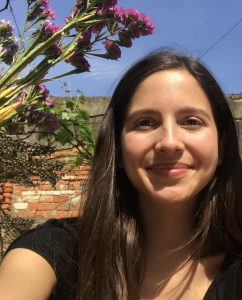
Ana Lankes is an assistant news editor at The Economist. Previously, she interned at the BBC, Global Witness in London, and the Global Public Policy Institute in Berlin. She graduated from Oxford University and is pursuing a master’s degree at the London School of Economics and Political Science.
Project summary: This case study analyzes the speech of Frauke Petry, leader of the right-wing party Alternative für Deutschland (Alternative for Germany). Petry accused the political establishment of attempting to wipe out the German people. The remark plays on the anxieties of party members, many of whom fear cultural disintegration due to increasing numbers of migrants, and feel alienated from the largely centrist and leftist German parliament. The party rejects most media outlets as ‘Luegenpresse’ (lying press—a term frequently used by Nazis, but popularized earlier) and frequently rejects interviews with journalist, making Petry and AfD-approved outlets the main and uncontested source of information for many of the party’s followers. AfD supporters have been involved in violence against asylum seekers in numerous incidents in the past year, most of which have occurred in the east of Germany, where the party is strongest.
Eriko Lau (Hong Kong)
 Eriko Lau just finished her two-year legal training in a human rights law firm and will soon be admitted as a solicitor in Hong Kong. In her work, She has assisted many non-refoulement claimants in seeking protection in Hong Kong. She is also the Deputy Chair of the Immigration Detention Working Group of the Asia-Pacific Refugee Rights Network. She recently obtained her Master of Laws in Human Rights (with Distinction) with a focus on refugee law at the University of Hong Kong.
Eriko Lau just finished her two-year legal training in a human rights law firm and will soon be admitted as a solicitor in Hong Kong. In her work, She has assisted many non-refoulement claimants in seeking protection in Hong Kong. She is also the Deputy Chair of the Immigration Detention Working Group of the Asia-Pacific Refugee Rights Network. She recently obtained her Master of Laws in Human Rights (with Distinction) with a focus on refugee law at the University of Hong Kong.
Project Summary: Lau’s case study will explore the misleading and discriminatory speech made by pro-establishment parties in Hong Kong against individuals making asylum claims in the country.
Achol Jok Mach (South Sudan)
 Achol Jok Mach is a South Sudanese/Canadian. She was born in South Sudan and has lived in Cuba and Canada. In 2011, she voluntarily moved back to South Sudan, a few months before independence, with the hope of learning more about her country and culture and wanting to contribute to building the new nation. She is currently a Specialist with PeaceTech Lab managing their South Sudan projects, which include developing and updating the South Sudan lexicon of hate speech, monitoring online hate speech using semi-automated and manual media monitoring approaches, and working with a data scientist to produce biweekly early warning reports containing predictions of violence.
Achol Jok Mach is a South Sudanese/Canadian. She was born in South Sudan and has lived in Cuba and Canada. In 2011, she voluntarily moved back to South Sudan, a few months before independence, with the hope of learning more about her country and culture and wanting to contribute to building the new nation. She is currently a Specialist with PeaceTech Lab managing their South Sudan projects, which include developing and updating the South Sudan lexicon of hate speech, monitoring online hate speech using semi-automated and manual media monitoring approaches, and working with a data scientist to produce biweekly early warning reports containing predictions of violence.
Project Summary: Mach will study the use of hate speech by South Sudanese politicians and whether it has influenced the diaspora to encourage more conflict, both online and offline.
Annet Matebwe (South Africa)
Annet Matebwe is a future trainee solicitor at Linklaters LLP and is currently pursuing her Graduate Diploma in Law at The University of Law in London. She completed her LLB at the University of KwaZulu-Natal in 2017. In 2018, she was the youngest receiver of the DAAD scholarship award for study towards an LLM in transnational criminal justice: an international and African perspective at the South-Africa German Centre housed at the University of Western Cape and Humboldt University. Her research focused on anti-corruption law in Africa for which she produced a paper evaluating Zimbabwe’s Anti-Corruption Commission. Annet has volunteered at numerous legal clinics around South Africa and served as a legal clerk for some of South Africa’s revered judges in the South African High Court and Supreme Court of Appeals. While an Associate Legal Officer at the Pan African Lawyers Union, she gained experience working on human rights cases in the East African Court of Justice and the African Court for Human and People’s Rights.
Project Summary: Matebwe will analyze anti-immigrant speech by various political and cultural leaders in South Africa. Such speech has fallen short of being declared hate speech by South African courts despite potentially inciting xenophobia, which is now a nationwide crisis.
Ana Beatriz Guimarães Passos and Guilherme Saraiva Grava (Brazil)
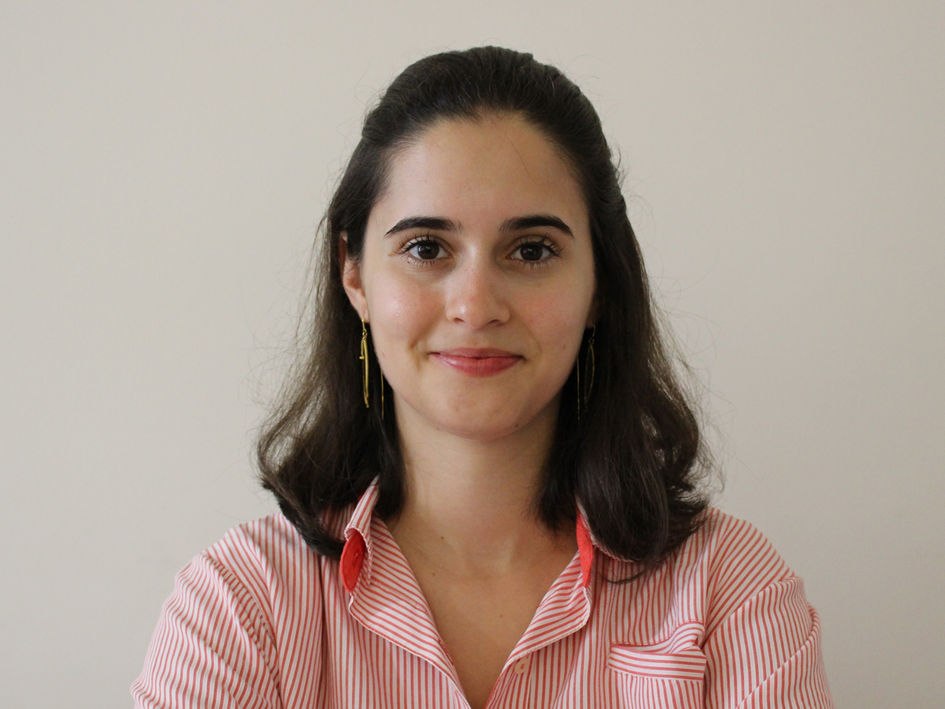 Ana Beatriz Guimarães Passos is a Brazilian lawyer and a Ph.D. candidate in Law and Development at FGV Direito SP.
Ana Beatriz Guimarães Passos is a Brazilian lawyer and a Ph.D. candidate in Law and Development at FGV Direito SP.
Guilherme Saraiva Grava is also a Brazilian lawyer. He teaches law at Centro Universitário Paulistano. Both have Master of Laws degrees in Law and Development from FGV Direito SP. Their research mainly focuses on the study of legal institutions and their relation to political, economic, and social development.
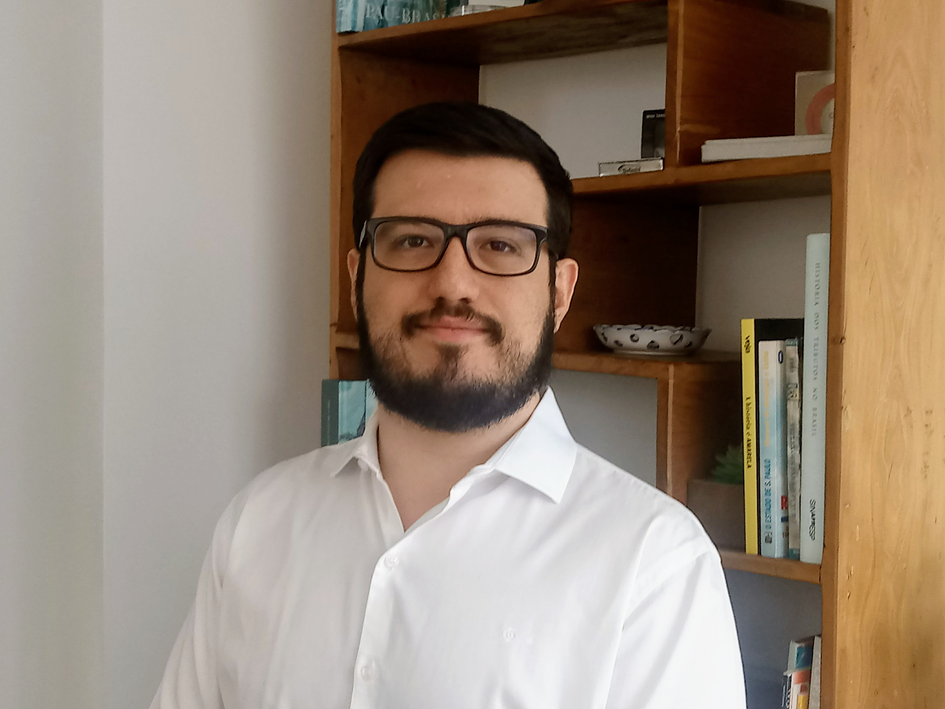 Project Summary: Passos and Grava will study the use of dangerous speech by the President of Brazil, Jair Bolsonaro, with a specific focus on the attacks directed at the press and journalists. Such rhetoric not only represents a potential threat to the country’s democratic institutions and the freedom of speech in general, but also raises concerns about the increase of the risk of violence perpetrated against these individuals while exercising their profession.
Project Summary: Passos and Grava will study the use of dangerous speech by the President of Brazil, Jair Bolsonaro, with a specific focus on the attacks directed at the press and journalists. Such rhetoric not only represents a potential threat to the country’s democratic institutions and the freedom of speech in general, but also raises concerns about the increase of the risk of violence perpetrated against these individuals while exercising their profession.
Prabhir Vishnu Poruthiyil (India)
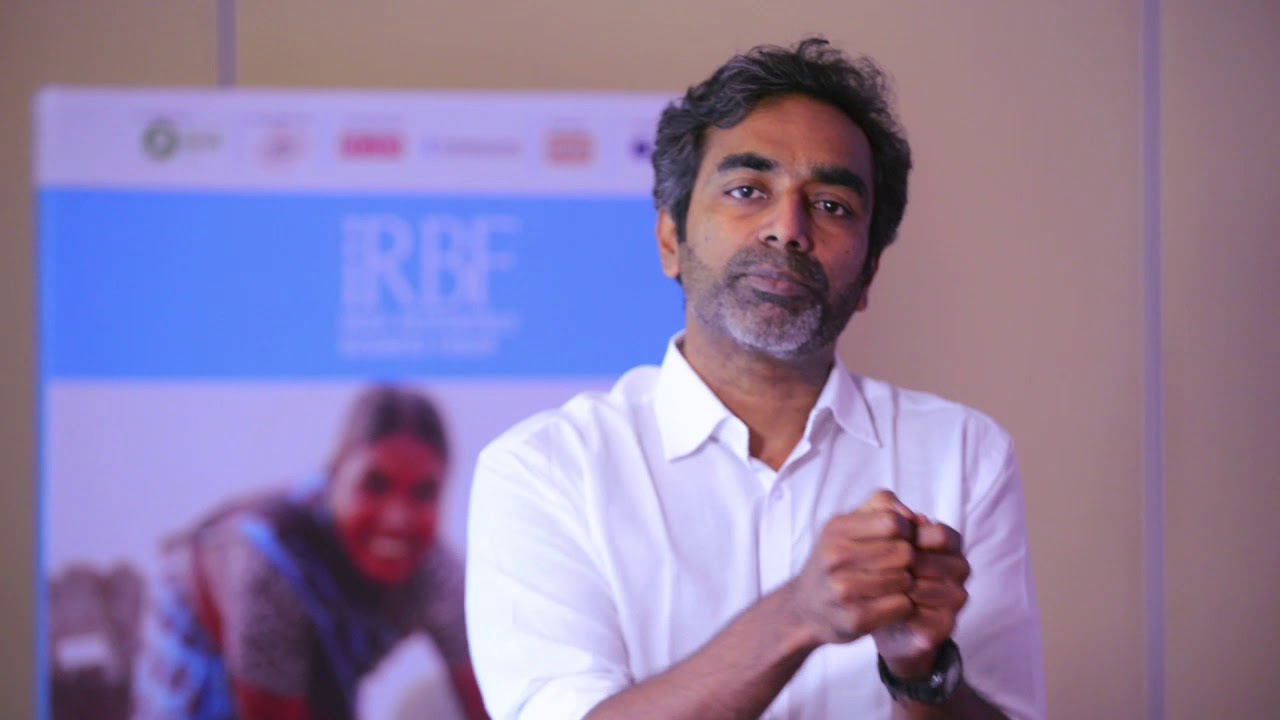 Prabhir Vishnu Poruthiyil is a faculty member at the Centre for Policy Studies at the Indian Institute of Technology Bombay. He teaches social policy, usually through the lenses of inequality, social polarization, and ageing in developing societies. Vishnu’s research has appeared in Business and Society, Journal of Social Quality, Critical Discourse Studies, Economic and Political Weekly, and the Journal of Business Ethics. His most recent publication in the Journal of Business Ethics, titled “Big Business and Fascism: A Dangerous Collusion,” demonstrates the interlocking interests of big corporations and proto-fascist political movements.
Prabhir Vishnu Poruthiyil is a faculty member at the Centre for Policy Studies at the Indian Institute of Technology Bombay. He teaches social policy, usually through the lenses of inequality, social polarization, and ageing in developing societies. Vishnu’s research has appeared in Business and Society, Journal of Social Quality, Critical Discourse Studies, Economic and Political Weekly, and the Journal of Business Ethics. His most recent publication in the Journal of Business Ethics, titled “Big Business and Fascism: A Dangerous Collusion,” demonstrates the interlocking interests of big corporations and proto-fascist political movements.
Project Summary: Poruthiyil will use discourse analysis of content from right-wing English-language portals to study what can be called “performative sectarianism” among significant sections of Indian elites, demonstrated by their apathy and enthusiasm for the systematic denials of civil liberties of minorities and dissenters.
Case study: A dangerous speech that triggered lynchings in India (2013-2018)
Andreas Reventlow (Denmark)
(Denmark)
Andreas Reventlow is the Head of Strategic Partnerships at International Media Support (IMS), where he oversees journalism programmes in countries affected by conflict and repression. He has extensive experience managing programmes on independent journalism, freedom of expression, and media in conflict. Andreas writes on issues such as the safety of journalists, free speech online and technology and human rights.
Project Summary: Pernille Vermund, the leader of the recently established right-wing political party, the New Conservatives, has throughout 2016 and in early 2017 made a series of statements in mainstream media and on social media, about immigrants in Denmark from the Middle East and North Africa. Her statements have been perceived as unusually discriminatory, racist, and as fuelling division and antagonism between immigrants and non-immigrants due to her extraordinary choice of words when referring to immigrants and those who support immigration. This case study explores these speech acts. Since this case study was conducted in 2017, Ms Vermund and her political party have entered the Danish parliament. In the June 2019 parliamentary election, her party Nye Borgerlige, won four seats.
Case Study: Global Researcher’s Initiative Case Study: Denmark
Marcell Sukosd-Kosa and Anna Szilagyi (Hungary)
Marcell Sukosd-Kosa is studying History at University College London. His main interest is the history of Central and Eastern Europe in the 20th century. More specifically, he focuses on the gender and cultural histories of Hungary. Previously to writing this case study, he worked as an intern at Hungarian think tanks Republikon Institute and Political Capital. At Political Capital, he published reports on the activity of far-right parties and groups in Hungary.
Dr. Anna Szilágyi is an expert in media, politics, and communication and the author of Talk Decoded, a blog about the power of language in politics. She explores how political rhetoric influences thinking and behavior across the globe. Her writings have appeared in international academic books and journals. She also writes articles and provides commentaries for major global and local media outlets, including The Columbia Journalism Review, Global Voices, Rappler, Quartz, and Vice News.
 Project Summary: The case study explores Hungarian anti-refugee and anti-migrant propaganda discourses from 2016 and 2017. The speakers are all powerful actors, including the country’s prime minister Viktor Orbán and the director of the governing Fidesz party Gábor Kubatov. We also analyze the textual component of a meme that was publicized on a blog by one of the celebrities of the local propaganda empire. Although they vary in terms of explicitness, the discourses in question are textbook examples of dangerous speech. The analyzed texts promote and reinforce the hostile, degrading, and inhumane perception and treatment of refugees and migrants as well as set people against those who aim to assist them in any way.
Project Summary: The case study explores Hungarian anti-refugee and anti-migrant propaganda discourses from 2016 and 2017. The speakers are all powerful actors, including the country’s prime minister Viktor Orbán and the director of the governing Fidesz party Gábor Kubatov. We also analyze the textual component of a meme that was publicized on a blog by one of the celebrities of the local propaganda empire. Although they vary in terms of explicitness, the discourses in question are textbook examples of dangerous speech. The analyzed texts promote and reinforce the hostile, degrading, and inhumane perception and treatment of refugees and migrants as well as set people against those who aim to assist them in any way.
Case Study: Anti-refugee and Anti-migrant speech in Hungary
Paweł Trzaskowski (Poland)
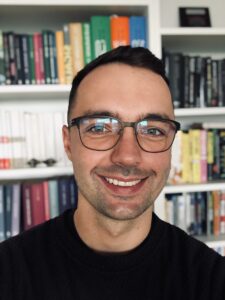 Paweł Trzaskowski is a Polish scholar based at the University of Warsaw and Polish Radio, and a 2020/21 and a 2022/23 DSP Global Research Initiative Fellow. He has obtained two MA degrees (at the Faculty of Polish Studies and at the Institute of English Studies) and is about to complete his PhD degree in the very near future. His PhD research discusses the manipulative language of online comments and the mechanisms that trigger dangerous emotions of those who produce and receive such texts. Paweł has also written several scholarly articles and co-authored a book on the topic of unethical language, a subject that shares key principles with the concept of Dangerous Speech. He was also a lecturer at the University of Warsaw as well as a member and the secretary of the Ethical Language Commission of the Council for the Polish Language. His latest work concerns the manipulative and toxic language of online comments and dangerous speech that targeted Silesians infected with COVID-19. In his spare time he rides a road bike.
Paweł Trzaskowski is a Polish scholar based at the University of Warsaw and Polish Radio, and a 2020/21 and a 2022/23 DSP Global Research Initiative Fellow. He has obtained two MA degrees (at the Faculty of Polish Studies and at the Institute of English Studies) and is about to complete his PhD degree in the very near future. His PhD research discusses the manipulative language of online comments and the mechanisms that trigger dangerous emotions of those who produce and receive such texts. Paweł has also written several scholarly articles and co-authored a book on the topic of unethical language, a subject that shares key principles with the concept of Dangerous Speech. He was also a lecturer at the University of Warsaw as well as a member and the secretary of the Ethical Language Commission of the Council for the Polish Language. His latest work concerns the manipulative and toxic language of online comments and dangerous speech that targeted Silesians infected with COVID-19. In his spare time he rides a road bike.
Project Summary: Trzaskowski’s 2020/21 project discusses the instances of dangerous speech that targeted Silesians infected with COVID-19. Silesia is a distinct region of Poland that during the first months of the coronavirus outbreak was the epicenter of pandemic in this country. The Silesians are an ethnic minority in Poland. During 2020, Silesians were ostracized, both online and in real life situations to the point that government officials had to issue statements to mitigate the attacks.
Case Study: COVID-19 and Anti-Silesian Speech in Poland 2020-2021
Project Summary: Trzaskowski’s 2022/23 project discusses the instances of dangerous speech that target Ukrainian war refugees in Poland. When the Russian invasion of Ukraine began in February 2022, millions of Ukrainian refugees have crossed the Poland-Ukraine border. Although both the Polish people and the Polish state have given the Ukrainians support, the prolonged immigration crisis and looming economic difficulties cause the audience to become growingly susceptible to this kind of speech.
Case Study: Dangerous Speech that targets Ukrainian immigrants in Poland
Context Brief: Dangerous Speech targeting Ukrainian war refugees in Poland
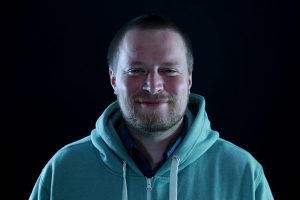 Jaroslav Valůch (Czech Republic)
Jaroslav Valůch (Czech Republic)
Jaroslav Valuch is an experienced practitioner in the field of media literacy, social media activism, hate violence, hate speech, and communication with crisis-affected populations. He is a project manager at Transitions, a Prague-based media development organization, where he runs the organization’s media literacy and disinformation initiatives, including Factczech.cz, which provides verification and factchecking support to Czech journalists and students.
Jaroslav is also a co-founder of the Institute for Social Inclusion where he oversees hate violence and extremism related programs. He contributes to the Budapest Centre for Mass Atrocities Prevention as a senior researcher and recently led a nationwide communication campaign focused on monitoring, awareness raising, and mapping of hate-motivated violence and hate speech organized by The Office of the Czech Government. In 2010 Jaroslav was a Fulbright Fellow at the Philip Merrill College of Journalism at the University of Maryland.
Project summary: This case study analyzes anti-Islamic speech in the Czech Republic, specifically that promoted by Martin Konvicka. Konvicka is the co-founder and leader of the “We Don’t Want Islam in Czech Republic” initiative (Islám v České republice nechceme – IVCRN) and one of its derivative movements, “Bloc Against Islam.” At the height of his public political career, Konvicka and Bloc Against Islam received the endorsement of the President of the Czech Republic, who publicly supported the initiative by delivering a speech on their stage on November 17th 2015, the National Day of Fighting for Freedom and Democracy (anniversary of 1989 Velvet revolution).
Case Study: Case Study: The Dangerous Speech of Miloš Zeman in the Czech Republic
Jake Wallis (Australia)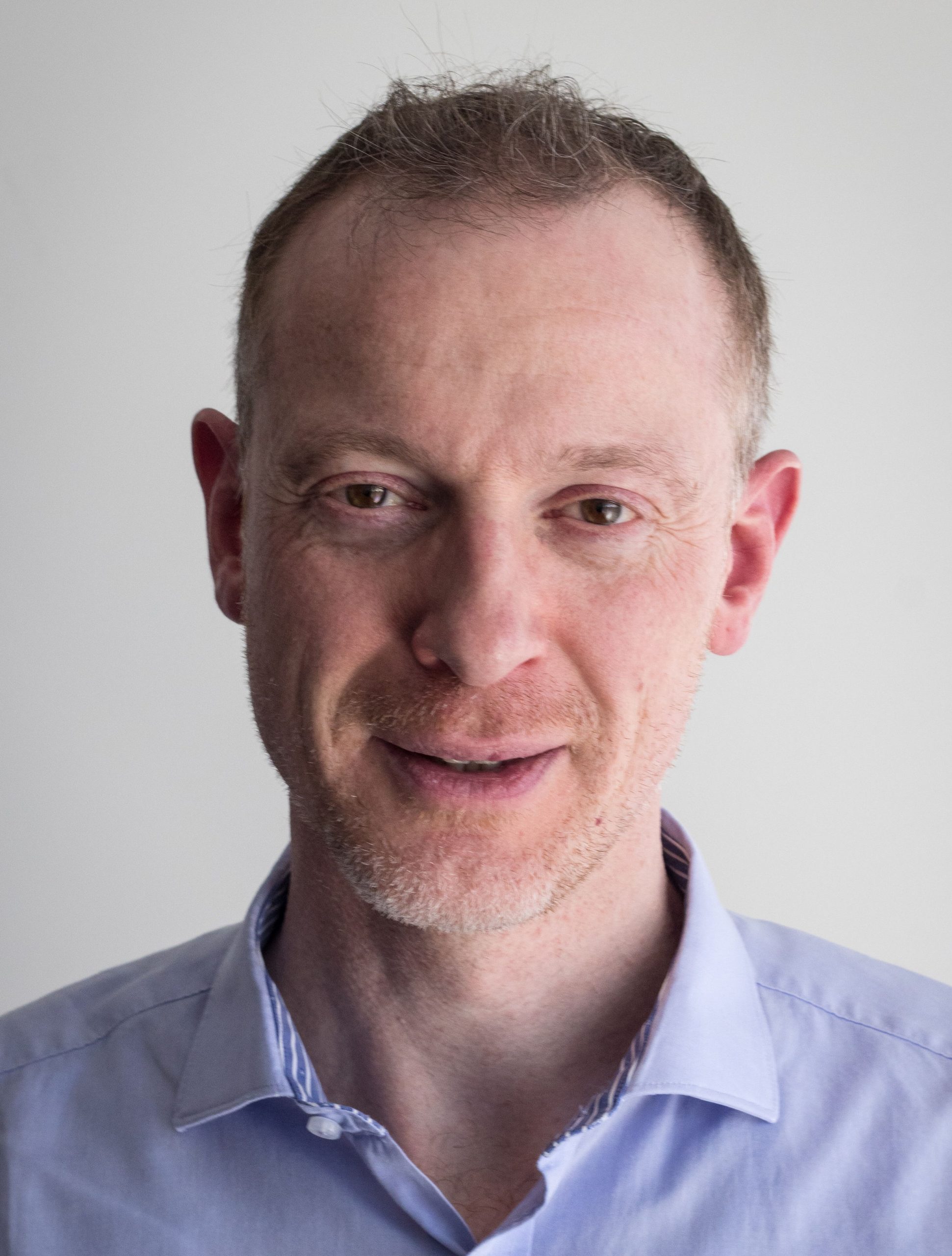
Dr. Jake Wallis is a senior analyst at the Australian Strategic Policy Institute’s International Cyber Policy Centre where he works on projects that explore the information warfare capabilities of state and non-state actors. Jake has worked in national security and as an academic researching the impact of digital connectivity on political participation. Jake’s PhD explored the mobilization of online networks by political groups. His subsequent research investigated the polarization of online political debate and the use of social media by extremist groups.
Project Summary: Australia’s far-right are using new media ecosystems to target large, politically-engaged audiences on social media. Wallis will analyze how these groups use language and news-style content framing, digital media (podcasts, imagery and memes) and social media channels to seed mainstream Australian political discourse with Dangerous Speech.


